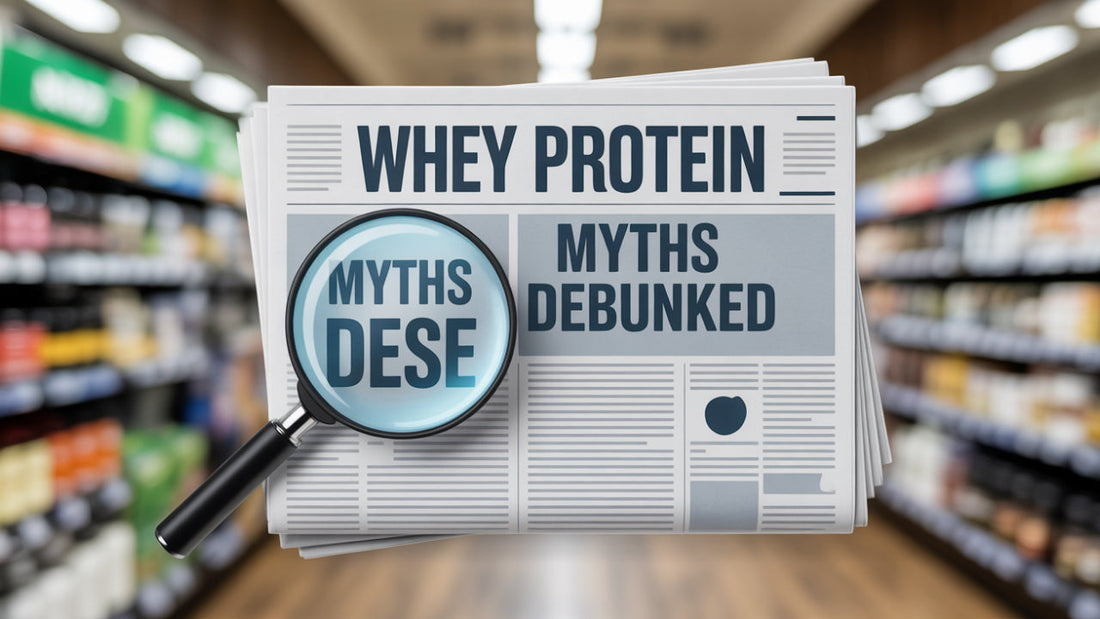
5 Lies About Whey Protein That Are Harming Your Health
byWhey protein is one of the most popular supplements in fitness and nutrition. From building muscle to boosting recovery, it’s everywhere. But along with its popularity comes a lot of confusing myths and misleading claims.
Today, we’re busting five of the biggest lies about whey protein so you can finally separate fact from fiction and use it the right way.
Lie #1: “Whey Protein Damages Your Kidneys”
This myth scares a lot of people—but it’s not true for healthy individuals. Research shows that even very high protein intake does not harm kidney function in people with healthy kidneys.
The confusion started decades ago when kidney patients on high-protein diets were studied. Their kidney issues were caused by pre-existing health conditions, not the protein.
👉 If you’re healthy and drink enough water, whey protein will not damage your kidneys.
Lie #2: “The More Whey You Drink, the Bigger You’ll Get”
Protein shakes aren’t magic muscle-builders. To actually gain muscle, you need resistance training plus the right overall diet.
Drinking more whey without exercising is like filling your car with fuel but never starting the engine—it goes nowhere. Extra protein just turns into energy or fat.
👉 Aim for 0.7–1.0 grams of protein per pound of body weight daily, paired with strength training, instead of chugging endless shakes.
Lie #3: “Whey Protein Always Causes Bloating”
Not true! The real culprit is usually lactose, which is found in cheaper whey protein concentrates. If you’re lactose intolerant, this leads to bloating, gas, and discomfort.
The fix? Switch to a whey isolate, which contains little to no lactose, or choose a brand that includes digestive enzymes.
👉 Don’t quit whey—just pick the right type for your body.
Lie #4: “All Protein Powders Are Clean and Safe”
Sadly, the supplement industry isn’t fully regulated, and some protein powders have been found to contain heavy metals like lead and arsenic.
To stay safe, always buy third-party tested products. Look for seals like NSF Certified for Sport or Informed-Choice, which guarantee purity and safety.
👉 A few extra dollars for certified protein is worth protecting your health.
Lie #5: “You Must Drink Your Shake Within 30 Minutes Post-Workout”
The famous “anabolic window” is mostly a myth. Your body continues building muscle for 24–48 hours after exercise—not just 30 minutes.
What truly matters is your total protein intake for the entire day, not the exact timing.
👉 Stop stressing about a 30-minute timer and focus on meeting your daily protein goal.
Final Thoughts
Let’s recap the five lies we just busted:
-
Healthy kidneys can handle whey protein—don’t believe the fear-mongering.
-
Protein alone won’t make you bigger—training and total nutrition matter most.
-
Bloating isn’t from whey itself—it’s often lactose, so try whey isolate.
-
Not all powders are safe—only trust third-party tested brands.
-
The 30-minute anabolic window is a myth—daily intake is what truly counts.
By understanding the truth behind these myths, you can make smarter choices about whey protein and get the real benefits without the confusion.








